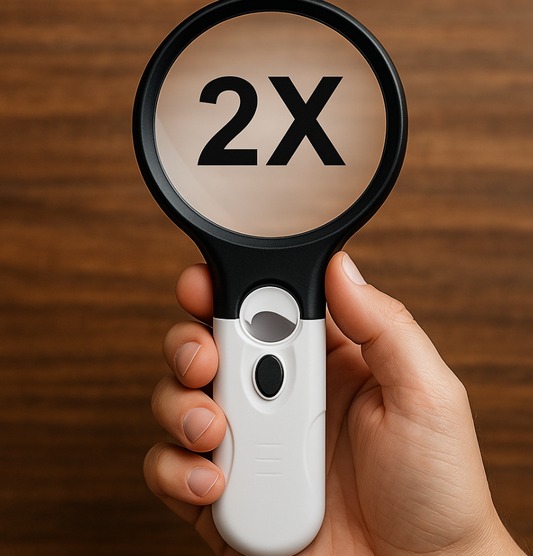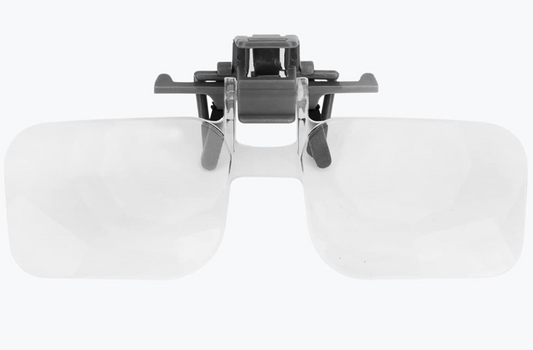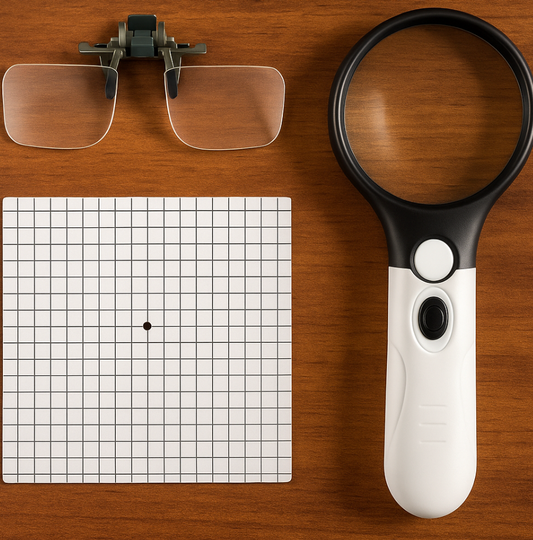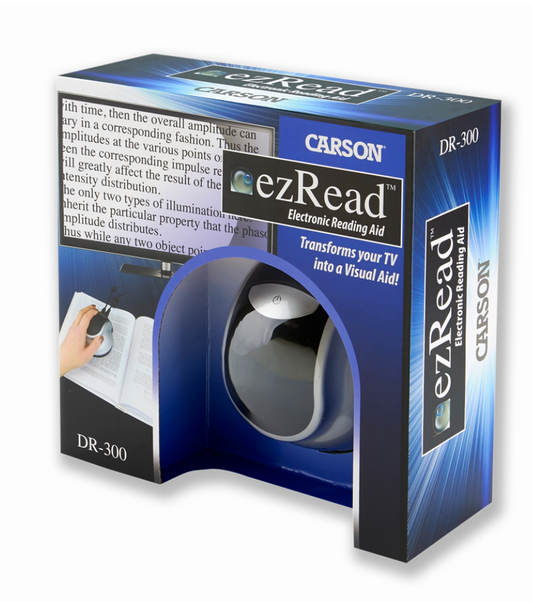How Perimenopause Affects Your Eyes: Dryness, Blurry Vision, and Eye Health Risks Explained
Share
How Perimenopause Affects Your Eyes
When most people think of perimenopause, they think of hot flashes, irregular periods, or mood changes. But did you know that your eyes can also be affected during this stage of life? The hormone changes that happen in your 40s and 50s can play a big role in eye comfort and vision. Here’s what you need to know.
Dry, Irritated Eyes
One of the most common eye problems during perimenopause is dry eye syndrome.
- As estrogen and progesterone levels drop, your tear glands don’t work as smoothly.
- The oil glands in your eyelids (called meibomian glands) can also slow down, leaving your eyes feeling dry, gritty, or watery.
For some women, dry eyes become a daily problem that makes reading, driving at night, or wearing contact lenses uncomfortable.
Learn more about managing your dry eye: From Dry Eyes to Clear Sight
Blurry or Changing Vision
Hormone fluctuations can affect how well your eyes focus. Some women notice their vision seems blurry at times or that they need to change their glasses prescription more often during perimenopause. This usually improves once hormone levels settle after menopause, but it’s a good reason to keep up with regular eye exams.
Increased Risk of Eye Conditions
Research shows that estrogen may help protect the eyes. As hormone levels decline, the risk of certain eye diseases increases:
- Glaucoma: Lower estrogen may raise the chance of developing glaucoma, a condition that damages the optic nerve.
- Cataracts: Hormonal changes can speed up the natural aging of the eye’s lens, making cataracts more common.
- Macular Degeneration: Some studies suggest that lower estrogen may be linked to a higher risk of age-related macular degeneration (AMD).
Contact Lens Discomfort
If you wear contacts, you may notice they suddenly feel dry or irritating. This is because your tear film (the protective layer over your eye) is less stable during perimenopause. Switching to daily disposable lenses or using lubricating drops can help.
Hormone-Related Migraines and Visual Changes
Some women experience more frequent migraines during perimenopause. These headaches can sometimes include visual auras—flashing lights, zigzag patterns, or temporary blind spots. If you notice sudden changes in your vision, always get checked by an eye doctor to rule out more serious issues.
Check our our post on Understanding Visual Auras
What Can Help?
Here are some simple ways to protect your eyes during perimenopause:
- Use preservative-free artificial tears or lubricating gels.
- Apply warm compresses to your eyelids to improve oil gland function.
- Consider omega-3 supplements (with your doctor’s guidance).
- Keep up with regular eye exams to catch problems early.
- Talk to your healthcare provider if you’re considering hormone replacement therapy (HRT), as it may influence eye health.
Bottom Line
Perimenopause is a natural stage of life, but it can bring unexpected changes to your eyes. If you notice dryness, blurred vision, or trouble with your contact lenses, don’t ignore it. An eye exam can help pinpoint the cause and keep your eyes healthy for years to come.



